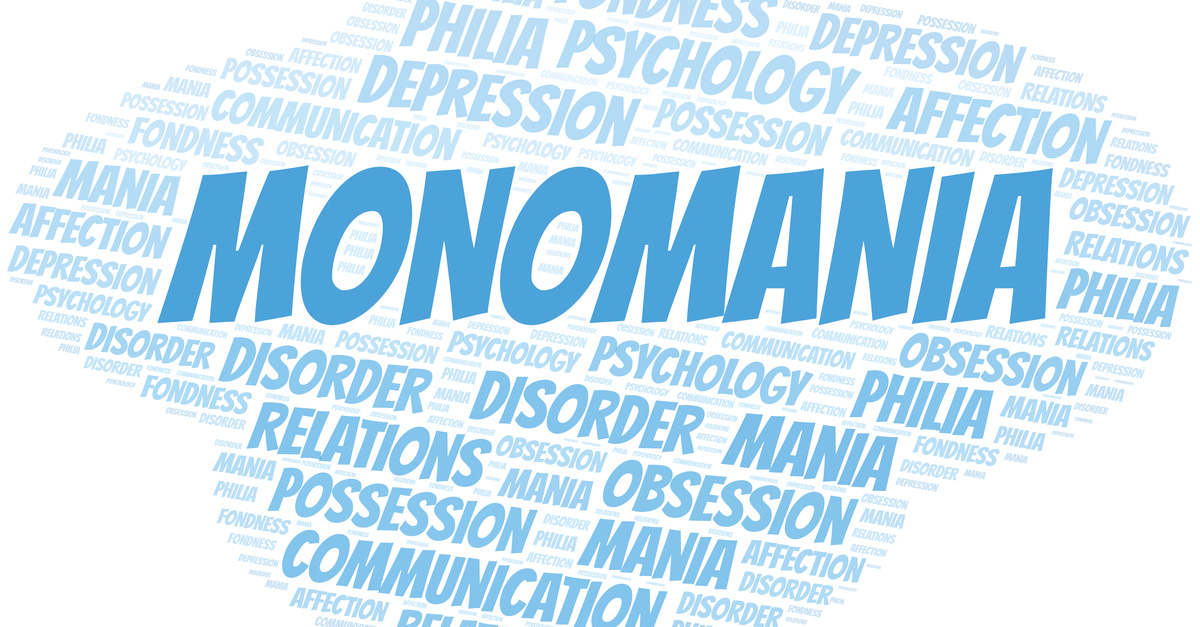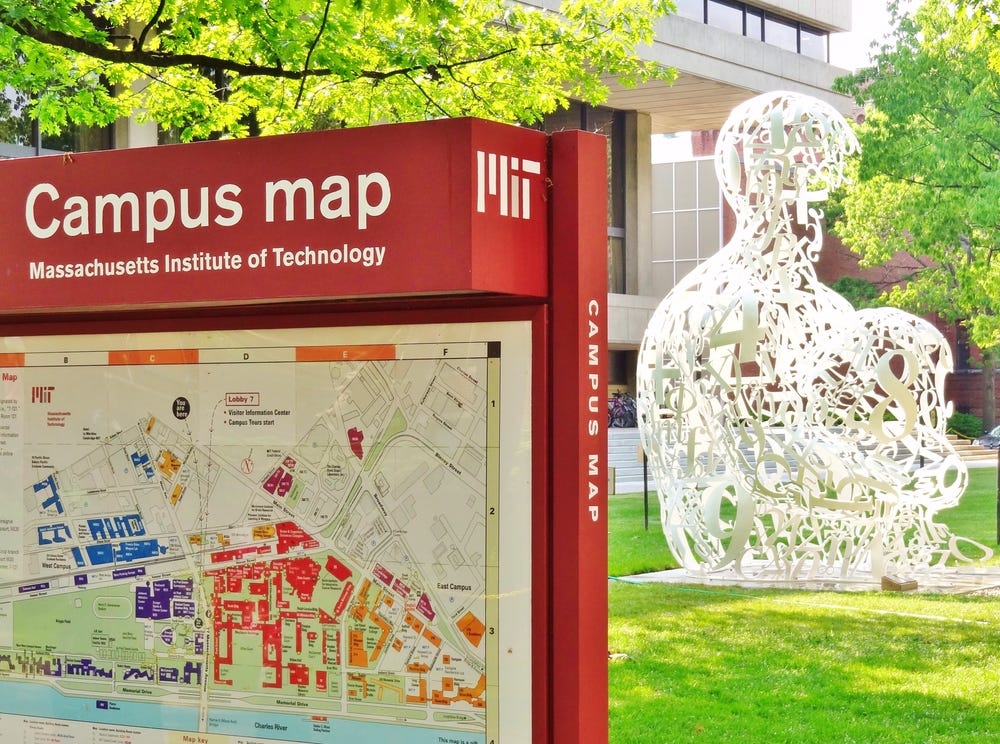E-Pluribus | October 5, 2021
The scourge of liberal monomania, universities teaching intolerance, and the article that got a potential MIT speaker cancelled - literally.
A round up of the latest and best writing and musings on the rise of illiberalism in the public discourse:
Jonathan Haidt: Monomania Is Illiberal and Stupefying
Though the word “diversity” is thrown around liberally (no pun intended) these days in educational settings, true intellectual diversity is often given short shrift resulting in what Jonathan Haidt refers to as a type of monomania, an obsession with a single idea or way of looking at things. Haidt argues that this cognitive tunnel vision can produce deeply illiberal individuals who cannot conceive of alternative worldviews and thus wish to suppress ideas that threaten their narrow ways of thinking.
In theory, one could be a liberal monomaniac—obsessed with a celebrity or an intellectual paradigm but perfectly willing to let everyone else have their own obsessions, or no obsessions. But moral and political monomaniacs generally travel in self-policing groups, and these groups are rarely liberal according to either of the two Oxford definitions. If you and your friends believe that everything is about power, and that the world is divided into the powerful people (who oppress others) and the powerless (who are oppressed), then you have a moral obligation to do something about it—all the time.
The “prestige economy” is the network of values and meanings within which people compete for status. In monomaniacal groups, the prestige economy rewards those who are most committed to the object of devotion, which has two major illiberal effects. The first is the “expansion imperative”—the pressure to apply the one true lens ever more widely. For example, one can gain points by interpreting glacier research and dog parks as manifestations of power structures. The insistence that the lens applies everywhere means that the preferred remedies must be implemented everywhere. This expansion imperative can explain the otherwise astonishing statement on page 18 of Ibram Kendi’s book “How to Be an Antiracist”:
There is no such thing as a nonracist or race-neutral policy. Every policy in every institution in every community in every nation is producing or sustaining either racial inequity or equity between racial groups.
In other words, if a high school teaches chemistry without discussing race, it is not “nonracist,” it is racist. True believers exert pressure on the leadership of the school to bring race into every part of the curriculum, and anyone who expresses doubt or raises concerns risks being publicly shamed and possibly fired. Monomanics sometimes demand that their focal value be installed as the telos of every organization.
This brings us to the second major illiberal effect: the incentivization of intimidation and cruelty. Within a group of people competing for prestige on adherence to a belief, one can often gain points by publicly attacking outsiders. This creates an incentive for individuals in the group to attack not just their enemies, who are often out of reach, but innocent people who happen to be nearby. This dynamic may account for the cruelty with which power monomaniacs turn on professors and administrators who try to help them, or who otherwise share their political views but not their monomania. The threat of job loss and reputational damage make everyone else walk on eggshells, and this fearful attitude is incompatible with the success of a liberal society.
Read it all.
J.D. Tuccille: Universities Are Teaching Intolerance
Even as the cries for “tolerance” grow louder in the educational establishment, J.D. Tuccille writes at Reason that, in reality, colleges and universities seem more intent on inculcating their own version of an orthodox religion, albeit a secular one. Combined with the ever-increasing cost of higher education, Tuccille argues that young people today are in need of alternative routes to the workforce that will not bury them in debt or in left-leaning dogma.
"There is an extremely intense, fundamental social justice religion that's taking over, not all students, but a very strong [space] of it, at all our colleges and universities," social psychologist Jonathan Haidt observed in 2016.
That absolutism and intolerance isn't unique to higher education or one political faction; liberals have long accused conservatives of leavening their politics with too much theology. Now the phenomenon has spread across the political spectrum.
"American faith, it turns out, is as fervent as ever; it's just that what was once religious belief has now been channeled into political belief," Shadi Hamid of the Brookings Institution argued earlier this year in The Atlantic. "Political debates over what America is supposed to mean have taken on the character of theological disputations. This is what religion without religion looks like."
But universities are supposed to be centers for exploring ideas and expanding knowledge, not for establishing the one, true faith. When their denizens become convinced they've found "the real moral truth," as Brocic and Miles put it, that leaves little room for their original missions, or for dissenters.
"66% of students report some level of acceptance for speaker shout-downs (up 4 percentage points from FIRE's 2020 report) and 23% consider it acceptable for people to use violence to stop certain speech (up 5 percentage points)," The Foundation for Individual Rights in Education reported last week of poll results from its 2021 College Free Speech rankings.
Read the whole thing.
ICYMI: Dorian Abbot and Ivan Marinovic: The Diversity Problem on Campus
Speaking of intolerance on campus, yesterday’s Around Twitter included a tweet thread from Robert George about the Massachusetts Institute of Technology’s cancellation of a climate talk by the University of Chicago’s Dorian Abbot because of his views on “diversity, equity, and inclusion.” Abbot expressed these views in an August essay for Newsweek that he co-wrote with Ivan Marinovic, an associate professor of accounting at Stanford Graduate School of Business, excerpted below:
DEI violates the ethical and legal principle of equal treatment. It entails treating people as members of a group rather than as individuals, repeating the mistake that made possible the atrocities of the 20th century. It requires being willing to tell an applicant "I will ignore your merits and qualifications and deny you admission because you belong to the wrong group, and I have defined a more important social objective that justifies doing so." It treats persons as merely means to an end, giving primacy to a statistic over the individuality of a human being.
DEI compromises the university's mission. The core business of the university is the search for truth. A university's intellectual environment depends fundamentally on its commitment to hiring the most talented and best trained minds: any departure from this commitment must come at the expense of academic excellence, and ultimately will compromise the university's contribution to society. This point is particularly urgent given that DEI considerations often reduce the pool of truly eligible candidates by a factor of two or more.
DEI undermines the public's trust in universities and their graduates. Some on campus might be surprised to learn that, according to a recent Pew poll, 74 percent of Americans think only qualifications should be taken into account in hiring and promotion, even if this results in less diversity. If current trends continue, employers and consumers will quickly adjust their perception of the value of a university degree.
Read it all here.
Around Twitter
A month after Peter Boghossian resigned (see item #2) from Portland State University over its illiberal tendencies he battled for a decade, he is still waiting for the non-right-leaning media to give him a call to discuss his decision:
Here’s an encouraging thread from Thomas Chatterton Williams on Cornel West showing how ideological and other differences do not have to translate into personal rancor and spite:
A follow up on yesterday’s Robert George thread on MIT’s cancellation of Dorian Abbot - Abbot will give the lecture at Princeton instead:
And finally, a peek behind the curtain at the New York Times Opinion division’s “coverage priorities.”









